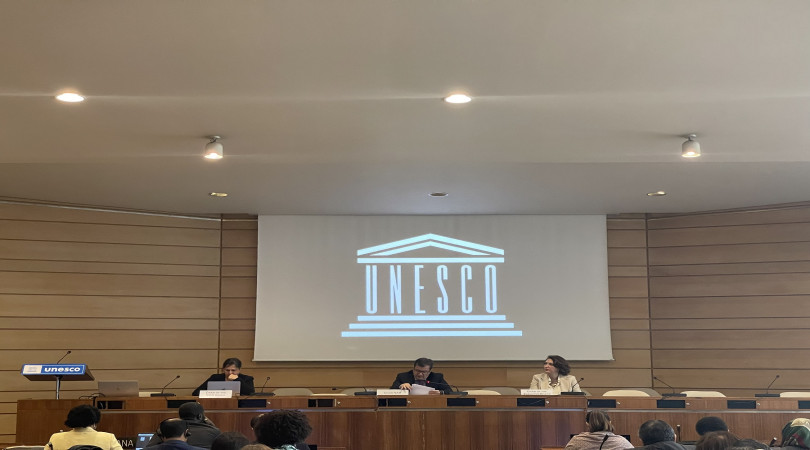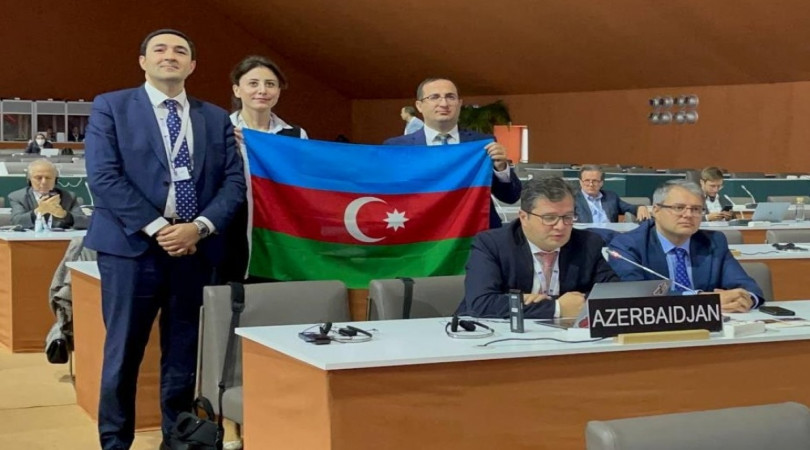Memory of the World
Ancient manuscripts of Azerbaijan in UNESCO’s World Memory Register
In the autumn of 2005 UNESCO has officially included three medieval medical manuscripts preserved by the Institute of Manuscripts of the Azerbaijan National Academy of Science to the Register of "World Memory" programme. This list includes the world's most unique and invaluable documentary heritage.The certificate confirming the decision of UNESCO was presented to the Institute of Manuscripts by the Secretary - General Koichiro Matsuura.
The "World Memory" program is carried out by UNESCO. Its purpose is not only to serve for the nations and countries, but to discover and preserve important and irreplaceable documentary heritage for all humanity. Nowadays Azerbaijan's manuscripts are also included to this register.
390 ancient medical documents are preserved in the Institute of Manuscripts of Azerbaijan State Academy of science named by M. Fizuli. 363 of them are the Arabic medical manuscripts of 9-11 centuries. Below is a brief overview of the three manuscripts included to the Register of "World Memory" programme.
Al-Qanun Fi at-Tibb (Canon Of Medicine, The Second Book) by Abu Ali Ibn Sina (Avicenna)
This is a collection of "Canon of medicine" - one of the most ancient manuscripts by Abu Ali ibn Sina (980- 1037) known as Avicenna in the West. This manuscript was transferred in 1143 year- one hundred and six years after author's death. That’s why it is considered to be the most reliable manuscript.
Ibn Sina was born in Uzbekistan's Afshan village (near Bukhara city) and his medical and scientific works related mostly to Iran, Azerbaijan and Central Asia. "Canon of Medicine" is considered as the best unprecedented encyclopaedic work in the medical field both in West and in the East. After the translation from Arabic into Latin (by Gerard Kremonali 12 century 1140-1187) it was considered the most comprehensive medical textbook in European Universities for centuries. The book received such a great praise, that even famous painter and sculptor Michelangelo said the followings about the author:" It is better to make a mistake following by Ibn Sina, than have a success following by the others".
Zakhirai-Nizamshahi (Supplies Of Nizamshah) by Rustam Jurjani
This book was written in 13 century and it is the similar to the work "Zehireyi - Kharazmshahi" by Ziyneddin Jurjani.The uniqueness of this manuscript is that it is not available anywhere but in Baku. Thus, the book is about ancient methods of treatment and about hundreds of natural medicaments.
Al-Makala as-Salasun (Thirteen Treatise) by Abu al-Qasim al-Zahravi (Abulcasis)
In the Instituteof Manuscripts the only thirtieth volume of the work belongs to Abulgasim Zehravi (12 century) is preserved. This famous Arabic scientist was born during the period of domination of the Arabs in Spain. The works of Abulgasim, Abukasis or Abulkassis also known by the others names are highly appreciated in Europe. In this particular work he describes the surgical instruments used 800 years ago and gives their images.
"Flower Book" of Khurshidbanu Natavan – album of illustrated verses
Known as the “Flower Book”, it is the only official poetry album, arising to date. This 227-page album was compiled in 1886. Khurshidbanu Natavan is one of the prominent representatives of 19th century Azerbaijani literature, (1832-1897), the last heir to the Karabakh Khanate, who made a significant contribution to the public life and cultural development of Azerbaijan.
















